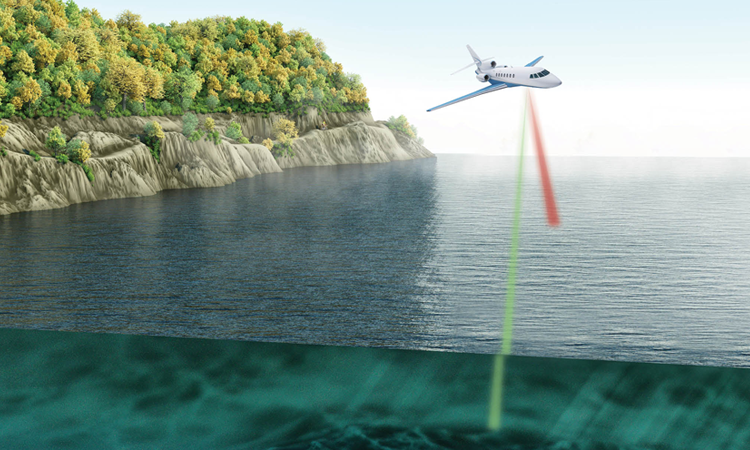Feature
Hyperspectral Lidar: A Progress Report
Laser-scanning instruments that allow hyperspectral and spatial data to be collected in a single shot could improve remote sensing in a wide range of applications.
 Lidar encompassing several spectral bands is useful in remote-sensing applications such as seafloor bathymetry. [Adapted from Getty Images]
Lidar encompassing several spectral bands is useful in remote-sensing applications such as seafloor bathymetry. [Adapted from Getty Images]
Hyperspectral imaging—in which each imaging pixel captures the full spectrum of the reflected light at that point—has gained momentum in recent decades, as both broadband light generation and light-sensing components have taken significant leaps forward. Hyperspectral cameras have existed now for over a decade; more recent technical development has led to miniaturized, MEMS-driven sensors for use in smartphones, drones, and CubeSats. These and other developments have opened up a treasure trove of possibilities in remote sensing and measurement, both on Earth and in space, ranging from monitoring forest and vegetation conditions to AI-assisted face recognition.
…Log in or become a member to view the full text of this article.
This article may be available for purchase via the search at Optica Publishing Group.
Optica Members get the full text of Optics & Photonics News, plus a variety of other member benefits.
